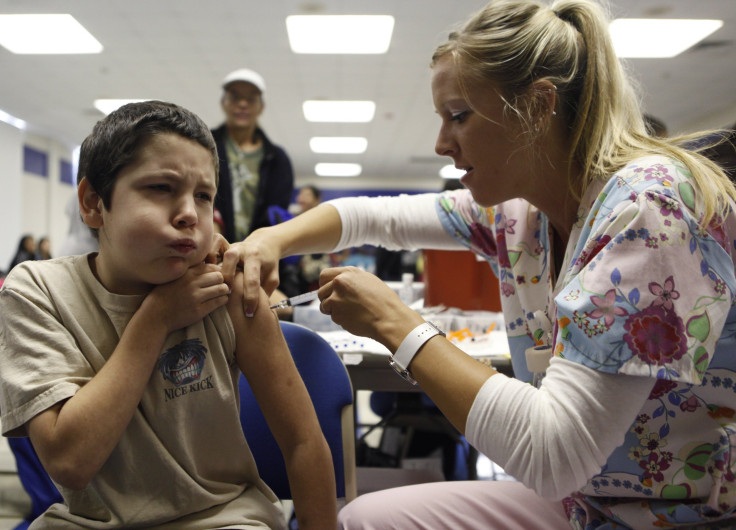NYC's Mandatory Flu Vaccination Rule For Preschoolers Struck Down By Court: Anti-Vaxxers, Rejoice!

It’s a victory for New York City children who hate getting stuck with a needle or inhaling a nasal spray, though not much anyone else.
Earlier this Thursday, a State Supreme Court struck down a mandate from the New York City health department requiring children 6 or younger to receive an annual flu vaccination before being allowed to attend select daycare or preschool facilities. The ruling came after a group of 5 mothers filed a lawsuit against the city claiming that the mandate was both unconstitutional and would “irreparably harm” their children since they wouldn’t be able to attend these facilities. The mandate was set to go in effect January 1 of next year and would have levied a maximum $2,000 fine to any daycare/preschool that didn’t certify all their attendees were vaccinated by December 31 of that current flu season.
“I am extremely disappointed by today’s decision,” the city’s health commissioner Dr. Mary Bassett said in a statement. “Influenza kills an average of 24,000 people each year in the United States, and the virus is spread easily in child care settings to children and their families. The vaccination requirement will save lives.”
Though the mandate as structured only affected about 2,200 daycare/preschool facilities out of the 11,500 licensed child care centers in New York City, it still would have covered approximately 150,000 children. It was passed through unanimously by the city’s Board of Health in December 2013, as part of the then-outgoing Mayor Bloomberg’s initiative to promote public health.
States such as Connecticut have enacted similar laws for their preschool population, with unequivocal success. A 2014 report from the Centers for Disease Control and Prevention found that flu vaccination rates for children under the age of 6 jumped from 67.8 percent during the 2009–10 influenza season (the year before the mandate went into effect) to 84.1 percent during the 2012–13 season. That corresponded with a 12 percent drop in the influenza-associated hospitalization rate among children aged 4 or younger compared to 2007-08. These improvements are doubly important since preschoolers are considered the most likely group to both spread the flu as well as come down with severe complications from it.
In the end, Supreme Court Judge Manuel Mendez issued his ruling not because mandatory flu vaccination isn’t worthwhile, but because the city overstepped its bounds. The current array of enforced childhood vaccinations for diseases such as rubella and measles was previously determined by a vote from New York’s state legislature, and only they retain the “statutory authority to mandate vaccinations not already expressed with the Public Health Law,” Mendez ruled.
“Parents across the city who, in consultation with their doctors, made the decision that the risks outweighed the benefits for their particular child, had that right taken away from them by 11 unelected individuals sitting in the Board of Health right across the street,” said Aaron Siri, an attorney representing the mothers, at a news conference following the decision. “If anybody is going to take away that right, it should be the elected representatives of this state.”
Among the lesser-publicized concerns voiced from these families was the fear that the flu vaccine itself isn’t safe, with the original lawsuit listing off common ingredients of the flu vaccine as potential health risks. This list included thimerosal, a mercury-based additive and preservative that has been routinely debunked as being a risk factor for autism and other neurological conditions. Thimerosal-free vaccines are, however, available for use from many health providers.
Published by Medicaldaily.com



























